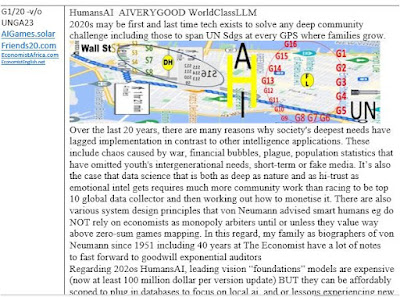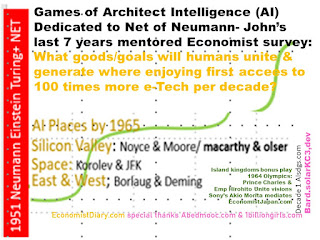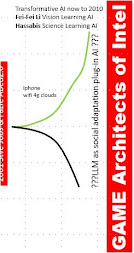I believe the purpose of education has become our last chance
of returning millennials to being the sustainability generation
Since 9/11, I have spent about half my working time
searching for system r4esolving solutions. For example, being mainly London-based
to 2005, I helped Paul Komesaroff host the first Global Reconciliation Network
event in 2003 with Mary Robinson as Keynote speaker. I then attended GRN Delhi in
2004. In 2004, I also helped host some Brazilian delegates to the European
Social Forum 2004 particularly those concerned with water as a human right
which Bula was supporting.
Also, for 3 years I was volunteer special interest group
editor of European Knowlegdbeoad.com. My designated interest was emotional
intelligence; of the 9 other special interest groups, our dialogues were
closely associated with the NGO interest group. It was during this time that we
started to form a club of collaboration cities aimed at celebrating each others
cultures: leading participants were Rome, Barcelona, Amsterdam. We also started
to parametrize why water poses so many different challenges to sustainability
in different parts of the world – this could be a suitable way of building collaboration
mapping networks that a virtual community space and its connections with the European
Union’s elearning goal. It was during this work that I heard more and more
Europeans talking about microcreditsummit and millennium goals.
In 2005, London Year of Make Poverty History, I was on the
board of the Simultaneous Policy (simpol.org) delegated to attend monthly events
connecting leaders of UK foundations. Unfortunately, much of the momentum of
this year collapsed with the 7/7 terror attack, and personally I lost one of my
5 main mentors.
My wife had needed to move to the University of Maryland for
her career, so from 2006 I became more and more interested in Bangladesh and
Asian women empowerment; initially by making contact with Sam Daley-Harris in
Washington DC. My family first helped Dr Yunus connect his social business book
launch between London and East Coast US Cities. But after my second trip to Bangladesh,
I realized I wanted to write up notes on what was then the 40 years of Sir Fazle
Abed’s work on poverty alleviation. I was surprised at the first 3-hour
brainstorming session with Sir Fazle Abed- the topic why not microeducationsummit
instead of microfinance summit. Brac was by now nearing recruitment of its
100000th employee culturally connected around Paulo Freire’s Pedagogy of the
Oppressed.
Abed went on to explain how platform building of partnerships
involved two very different quarter of a century. From 1970 to 1995, all village
connections were person to person or print. From 1996, Brac internet, and soon
the opportunity to develop universities, as platforms changed the future partnerships,
he could linkin. But always his focus was ending Colonial Era heritage of linearly
examined education. Brac had from the outset started with adults’ jobs training.
By the time Abed started Brac University in 2001, there was one last schools’ development
process to design: playschools. Typically, of Abed he saw this as an opportunity
to start designing a format that dozens of countries could join in – BRAC University
pioneered the first MA in playschools in Asia if not the world.
It is, of course, peculiar to those who value education that
it was as late as 2011 that the world’s first global education laureates were
launched due to the extraordinary vision of First Lady of Qatar Sheikha Moza. She
was already developing women’s education city campus, and seized the
opportunity to leverage the location of the country’s conference center to celebrate
both WISE education laureates and WISH health laureates. Her and Sir Fazle’s
movements fitted perfectly – at least until the blockade of Qatar when Qatar
Foundation lost its role as official UN hub for all refugee education networks.
There is much urgent work to be done if education is to be
valued as much by future place leaders as economics. There is no network as
well suited as TeachForAll to continue the legacy Sir Fazle’s half century and empowerment
of billion Asian women has grounded.






No comments:
Post a Comment